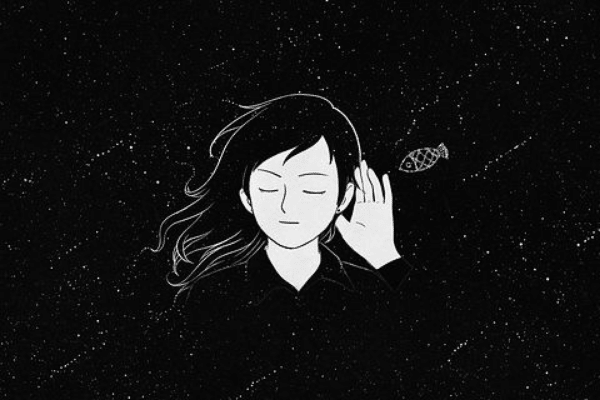Master The Art of Listening
Part 1:
Are you a good listener?
—
"Wisdom is the reward you get for a lifetime of listening when you'd have preferred to talk "
—Doug Larson
Our ears are the first sense organs which are developed in the womb, and they are the last organs to stop functioning at the time of our death. And our ears are also the fastest organ to receive and process information, even faster than eyes. Interesting, isn’t it? Okay, enough of facts! Let’s come to the topic.
Are you a good listener? Has anyone ever complimented you so?
Listening is an art. One of the greatest arts in life is to learn how to listen. Listening is not just hearing, it’s so much more than that.
Listening Vs. Hearing: What’s The Difference?
When we listen to somebody or to something, we don’t just receive auditory inputs through our ears, we process that in the brain. Many mental processes are involved in this. First, we recognise what is being said or heard. Then, we interpret that information based on our knowledge, beliefs, experiences—which we can call conditioning. Finally, we respond. So, listening occurs at three stages: the first stage is perception; the second stage is interpretation; the final stage is response. We may even choose not to respond. But the first two stages are absolutely integral to the listening process. Just having perception of sound is not listening—that’s only hearing! And this is the major difference between listening and hearing.
When Does Listening Happen?
The second stage of listening, i.e, the interpretation stage, is the actual stage when listening occurs. The first stage is involuntary. It happens automatically. That is, auditory perception happens by itself whenever there is any sound input. Hearing is involuntary. We cannot but hear. We can choose to shut our eyes and receive any visual input, but with ears we cannot do that; unless, of course, there is a hearing impairment.
The second stage is where it becomes an act of listening. It has to be voluntary, conscious. Listening is never involuntary. So, listening is a conscious act, unlike hearing. Now, we have to understand how we interpret things.
Here comes different mental processes. The same thing said by someone can be interpreted in different ways. This is our everyday experience, right? So, even if the same thing has been said, different listeners will listen to it differently. So, clearly, listening is a subjective act.
True Listening
Proposition: True listening occurs when there is no distortion by conditioning.
Now, when we listen (and I mean listen!), we listen with our own limited knowledge, experience, beliefs, opinions, prejudices, biases, desires, motives and so on; do we not? All these constitute our conditioning.
How can we listen something ‘as it is’ when we are conditioned‽
Conditioning will invariably distort listening, will it not? Just think for a moment. Can a conditioned mind ever listen? It can’t! A conditioned mind will inevitably distort the listening, because a conditioned mind cannot take the information ‘as it is’, in its pure form. It will bend it, twist it, shape it, add to it, break it even, and will draw a conclusion from it, all according to its conditioning. So, do I mean to say, nobody listens‽ The answer is an emphatic YES! Nobody actually listens in the true spirit of listening. Such souls are rare who can actually listen, truly, deeply, without any distortion.
Now, you may ask, how is it possible to listen without conditioning? We cannot destroy our knowledge, experience and all the rest of it! Conditioning is there, it cannot be put aside! Whatever we will listen to, we will listen with our knowledge and experience! — This is where it becomes an act and a skill too. It must be done!
Both—putting our conditioning aside and destroying it altogether—are possible. But let’s not go that far now. If we can’t destroy our conditioning totally, surely we can at least learn to put it aside. Because if that is not possible, then the proposition that “True listening occurs when there is no distortion by conditioning” becomes meaningless. And let me state it very clearly. That this is possible is not my belief, I know that it is so! Maybe it’s not true for you yet, but for me, it’s sine qua non.
Now, if that is possible, how? It’s actually not that hard.
Empty Thyself
Once a disciple went to his Zen master and said, “Master, teach me Zen”. The master started to prepare tea for him. He started to pour tea into the cup. The cup became full. But the master didn’t stop. He continued pouring tea…until the disciple finally intervened.
“Master, the cup is already full! Why are you still pouring…?”
The master looked at him and said, “You are like this cup. Already full. Nothing can be given to you. Go, first empty thyself!”
We are all like that cup—full with our stuff. So, how can we ever hope to listen and imbibe something new?
Now, how to empty?— That is the question. Very simple.
Just drop this thought— “I know”.
If you can do this much, you’re done. You can listen with fresh new-born ears. The problem is we think we know! We think we are right and the other person is wrong!— This one thought is so etched in us as if mixed with our blood cells.
A Compassionate Ear
“Most people do not listen with the intent to understand, they listen with the intent to reply.”
—Stephen R. Covey
Barely do we listen to understand. Our tendency is to reply. We are always busy in our minds thinking what to say, what not to say, how to say and so on. Before we even listen completely, we are ready to shower our views.
Most people never listen to each other. Most people just chatter away their own things, without giving the other person any chance to speak. We are so busy with our own thoughts that thoughts of others don’t get priority to us. This breaks the spirit of conversation. This makes our relations shallow. It shows a lack of care for each other.
You know, to listen to someone is to care for that person. How do we care when an important class lecture or a business meeting is going on? Do we take the pain to listen or not? Most of the time, we do so not out of love, but because it is necessary. To listen with care needs a compassionate ear. To listen to that speaker fully, to understand him—not only his words, but things that he meant but didn’t say, his implications, his attitude, his perspective—all that. We cannot do that if we don’t listen with care. To care means to take the pains to listen patiently. Bryant H. McGill said:
“One of the most sincere forms of respect is actually listening to what another has to say.”
Most people, when they speak, just want to be heard, not counselled or advised. Often just listening is what is needed, no reply, no answer is necessary. People have this deep urge to be heard, to be understood. People actually hate others’ advice, if it is not solicited.
Often we only have to listen them out. You will see, if we just listen and listen without intervening with our thoughts, they will be so happy! Because when we see, we’re being heard, subconsciously we feel that we’re being valued and given attention to. And everybody is addicted to this feeling. This is a pretty strong tendency in all of us—wanting to be valued, given attention to, appreciated. And when someone feels so, it builds trust in that person. He or she feels more comfortable to open his or her heart, a mutual bond is created. This is one of the best feelings actually—to be deeply heard. Do you also not want that?
Last Words
There is a different and subter kind of listening—listening to our thoughts. It is harder to master, but Self-understanding begins with this. We’ll discuss it in the next part. Until then, try to be a good listener by keeping this in mind—
“Too often we underestimate the power of a touch, a smile, a kind word, a listening ear, an honest compliment, or the smallest act of caring, all of which have the potential to turn a life around.”
—Leo Buscaglia
—
Thank you for your patience.
Love, Alok 🍁









Comments & Discussion
18 COMMENTS
Please login to read members' comments and participate in the discussion.